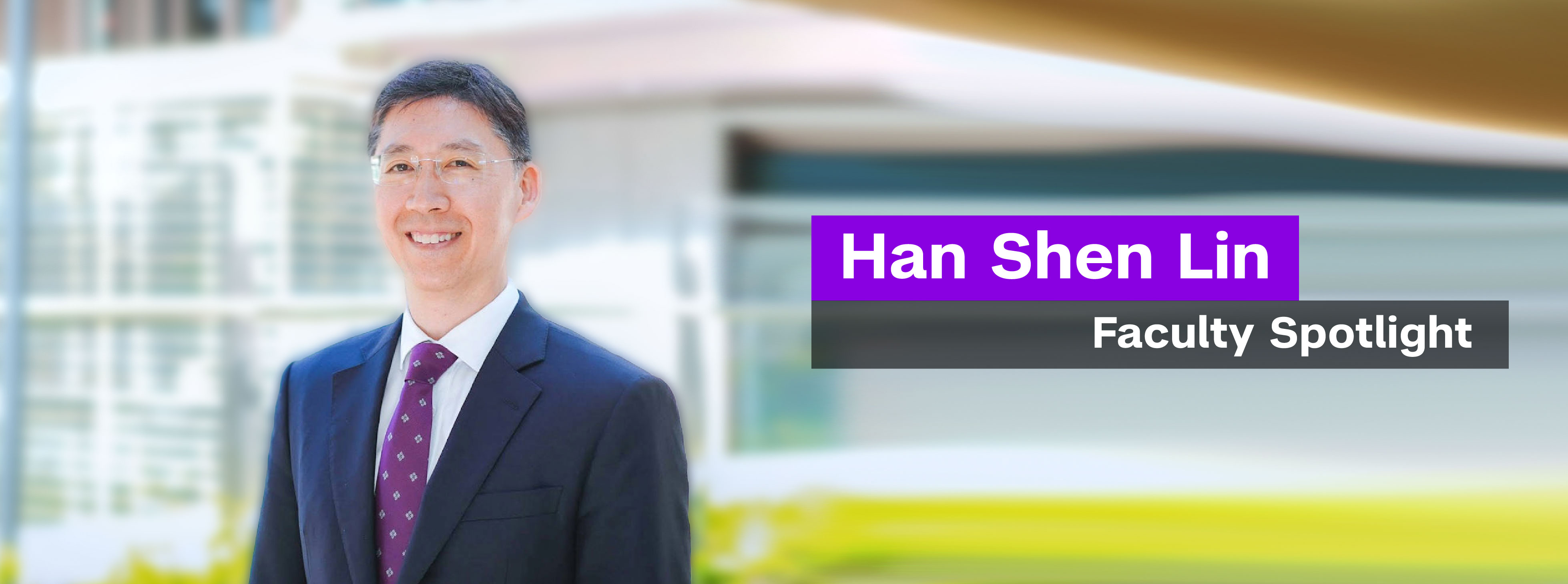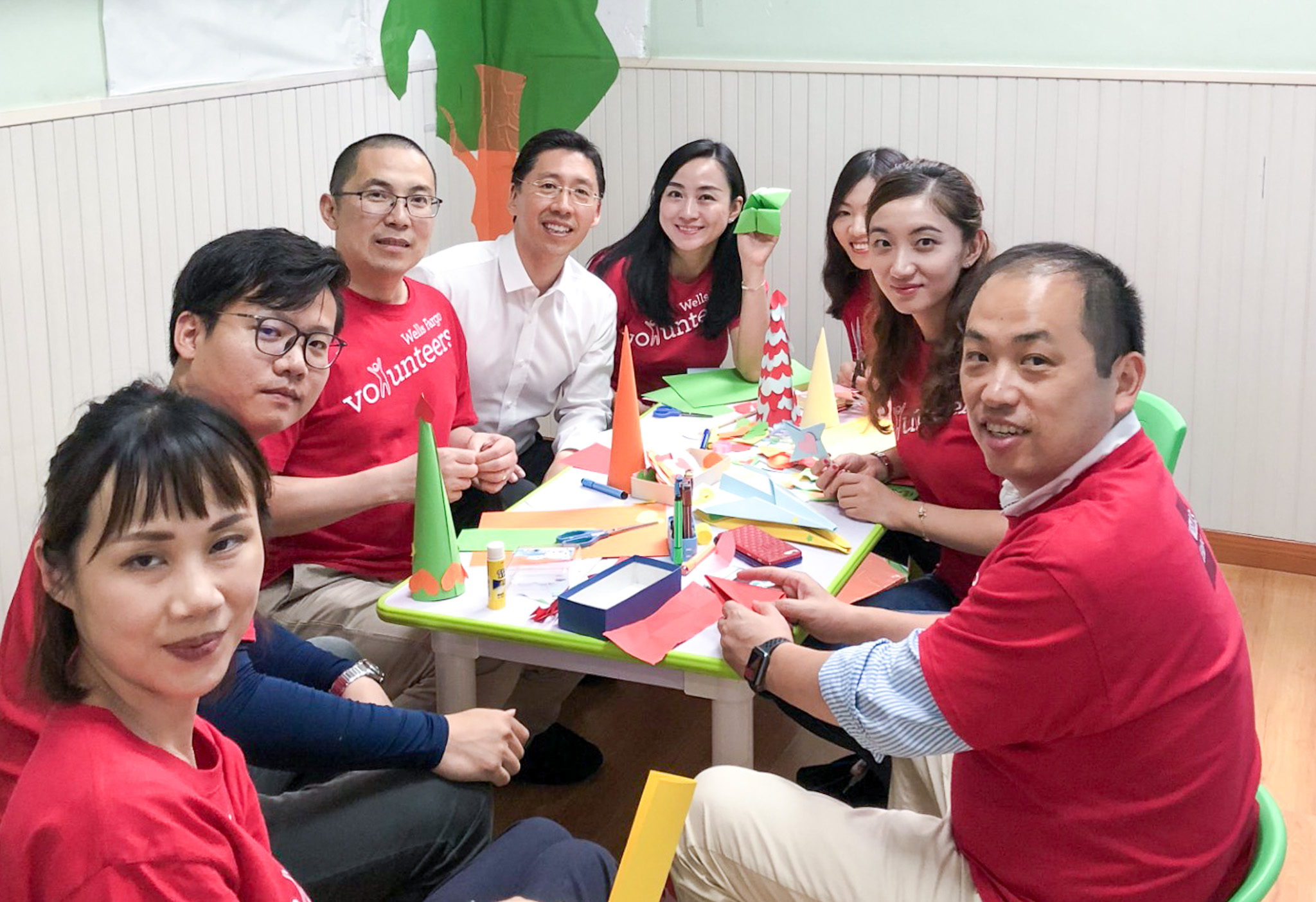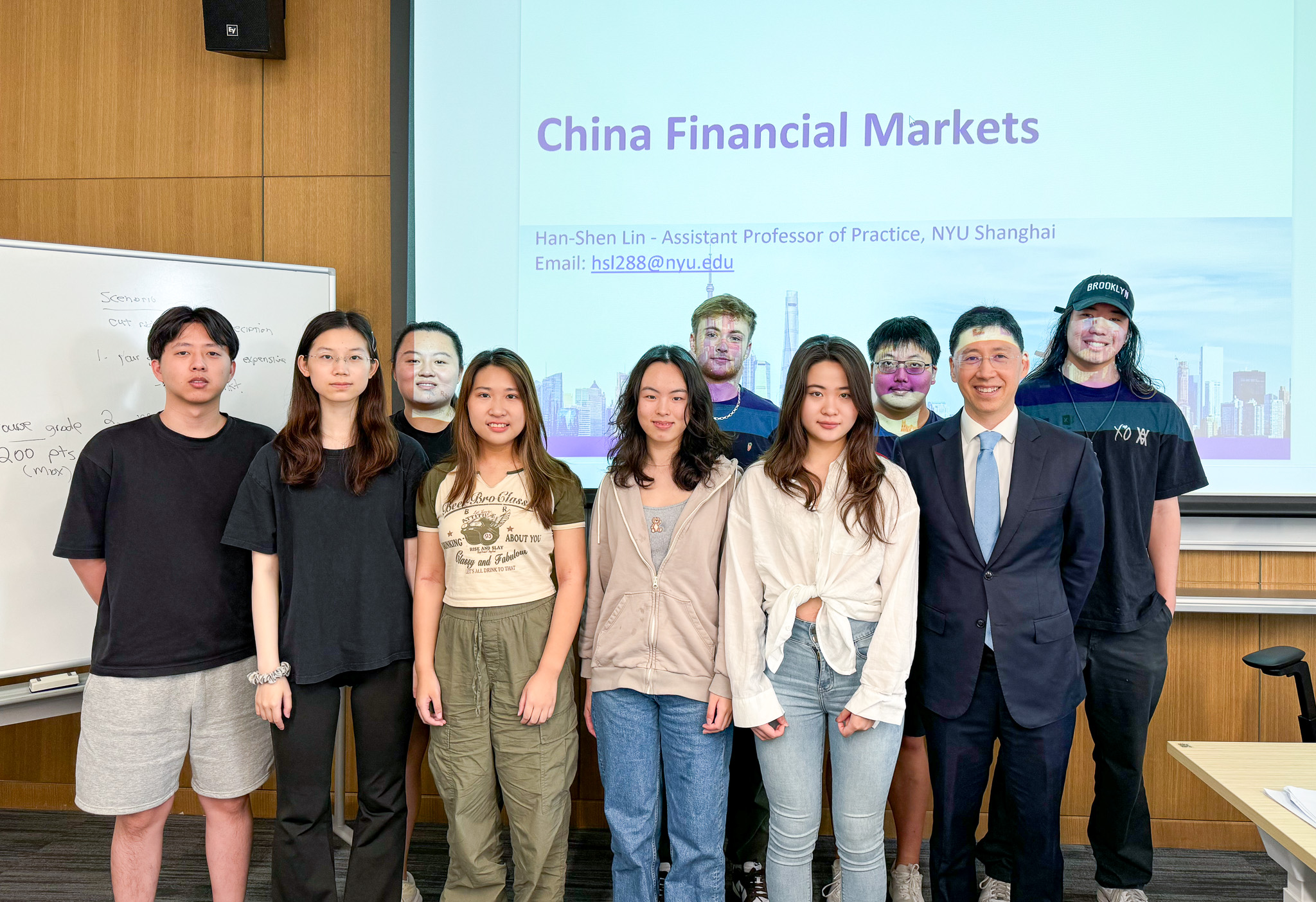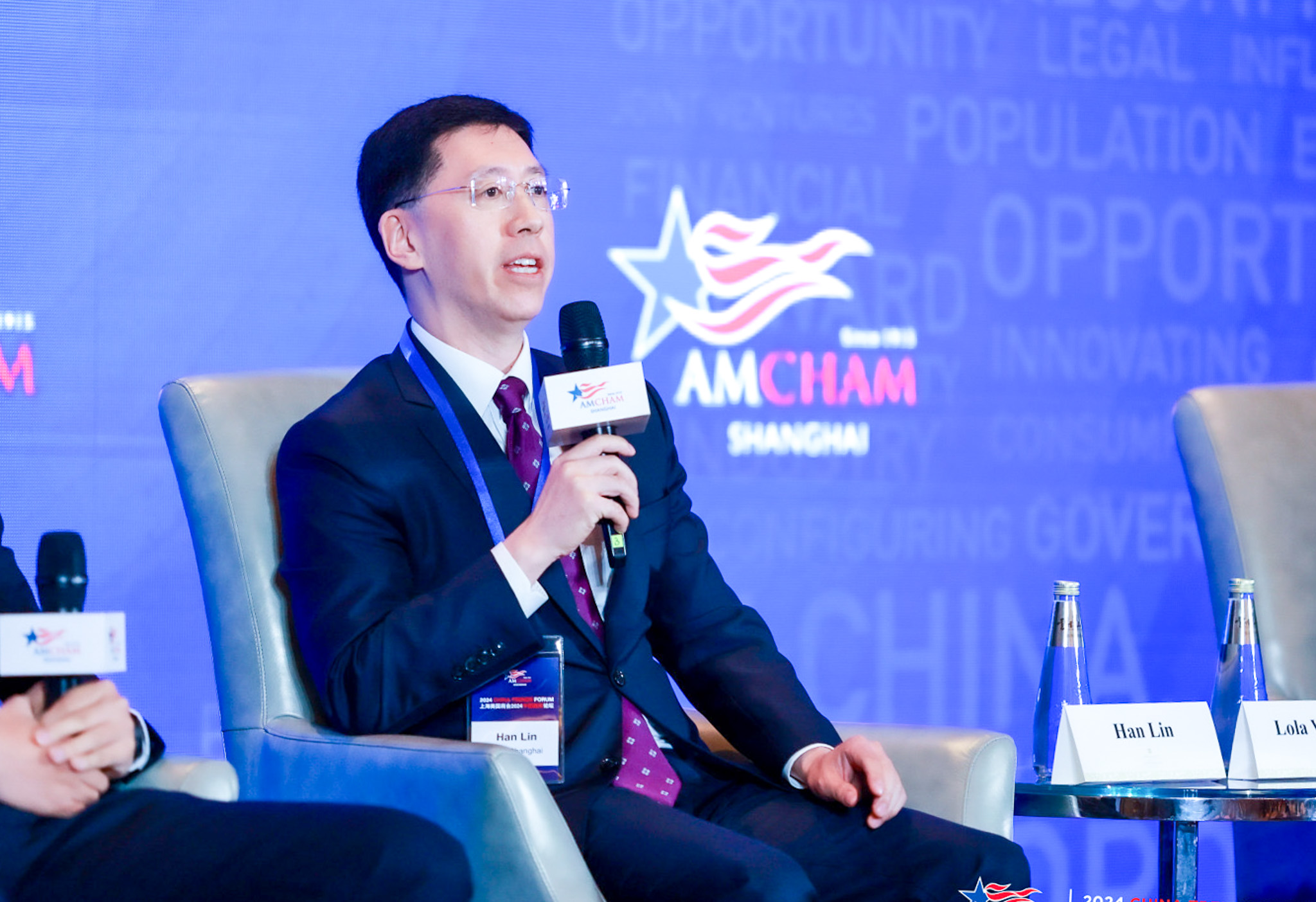
Associate Professor of Practice in Finance Han Shen Lin found his niche in teaching at NYU Shanghai after a decades-long career in banking, corporate, and service in both the U.S. Marine Corps Reserves and Peace Corps (Ukraine.)
You have such a wealth of experiences around the world, and in your 18 years in Shanghai. Did you always know you wanted to end up in banking?
I always had interest in a banking career but took a round-about way to get there. My earliest work experience started in the U.S. Marine Reserves with tours in Okinawa and the Philippines. A later stint as a management trainee at GE detoured to service in Ukraine as a Peace Corps volunteer. Upon returning to the U.S., I entered graduate school in Washington DC, then finally started my banking career in Wells Fargo at a late age of 33 years old.

Tell us about the transition from finance to education. Why did you want to work with students?
At Wells Fargo, I had the nickname of “the professor” from all the time spent educating corporate clients and bank colleagues about China. I enjoyed the teaching so the opportunity to work with wonderful students at NYU Shanghai felt like a natural career progression.
How have your previous roles in banking and in the military helped you in your teaching?
When I was invited to join NYU Shanghai, it was primarily to bring a practitioner's view about the markets that could complement the superb education the students receive in other finance courses. The questions regarding market participants and how they behave under changing policy conditions was a perspective I could offer after years in international banking.

Do you talk about your career experiences with your students?
I do talk about my career experiences, but mostly about my mistakes, many of which are rather embarrassing. The point is that you can still thrive regardless.
You also run the Capstone for the Master of Science in Quantitative Finance (MSQF) Program. What do you think sets NYU Shanghai apart from other universities offering an MS in quantitative finance?
NYU Shanghai can tap into a rich history of exceptionally strong academic and practical research through NYU’s Stern School of Business. It also benefits from the fact that it's physically located in Shanghai, China's financial capital. The facilities are fantastic and brand new. Plus there is such strong government support for our programs here.
What do you enjoy most about teaching the capstone?
I most enjoy watching students collaborate with their capstone financial institution sponsors to get real world insights. They all go through the journey of defining a problem scope, gathering the relevant data, analyzing, reaching reasonable conclusions and presenting them well. These are skills they will need in whichever industry they end up in.

How has being a long-time member of the American Chamber of Commerce in Shanghai informed your world view?
The Chamber’s mission is to help U.S. multinationals succeed in China. That means understanding how U.S.-China relations evolve and the challenges faced whenever there are tensions. As a member of the chamber, I have served on the board of governors, including with our vice chancellor Jeff Lehman and have chaired the financial services committee for several years. Given these leadership roles, I can keep in close touch with many corporate leaders to get a sense of what is top-of-mind for them and where relevant, share the learnings with students.
What are some lessons from your years in banking that you share with your students?
The most profound experiences came from failures, therefore, I remind students that there's nothing wrong with making a mistake. It’s part of the learning process. In fact, when I have interviewed candidates in the past, I’ve been more interested in what they have learned from their mistakes. The hope is that they are less likely to make them again if I hire them.
Another lesson is that students should treat everyone with respect whether it is somebody senior or junior. I have seen so often where a manager has mistreated a junior employee, yet because of a company change, the junior employee becomes the new boss.
What keeps you occupied outside work?
I like to spend time with my family. Both my wife and I are quite active in our two daughters’ education. For much of my childhood, I studied Shaolin kung fu, tai chi chuan, and taekwondo. I used to compete actively. Now I'm a lot older, so my body doesn’t quite recover as quickly, but I still do kickboxing two to three times a week.

